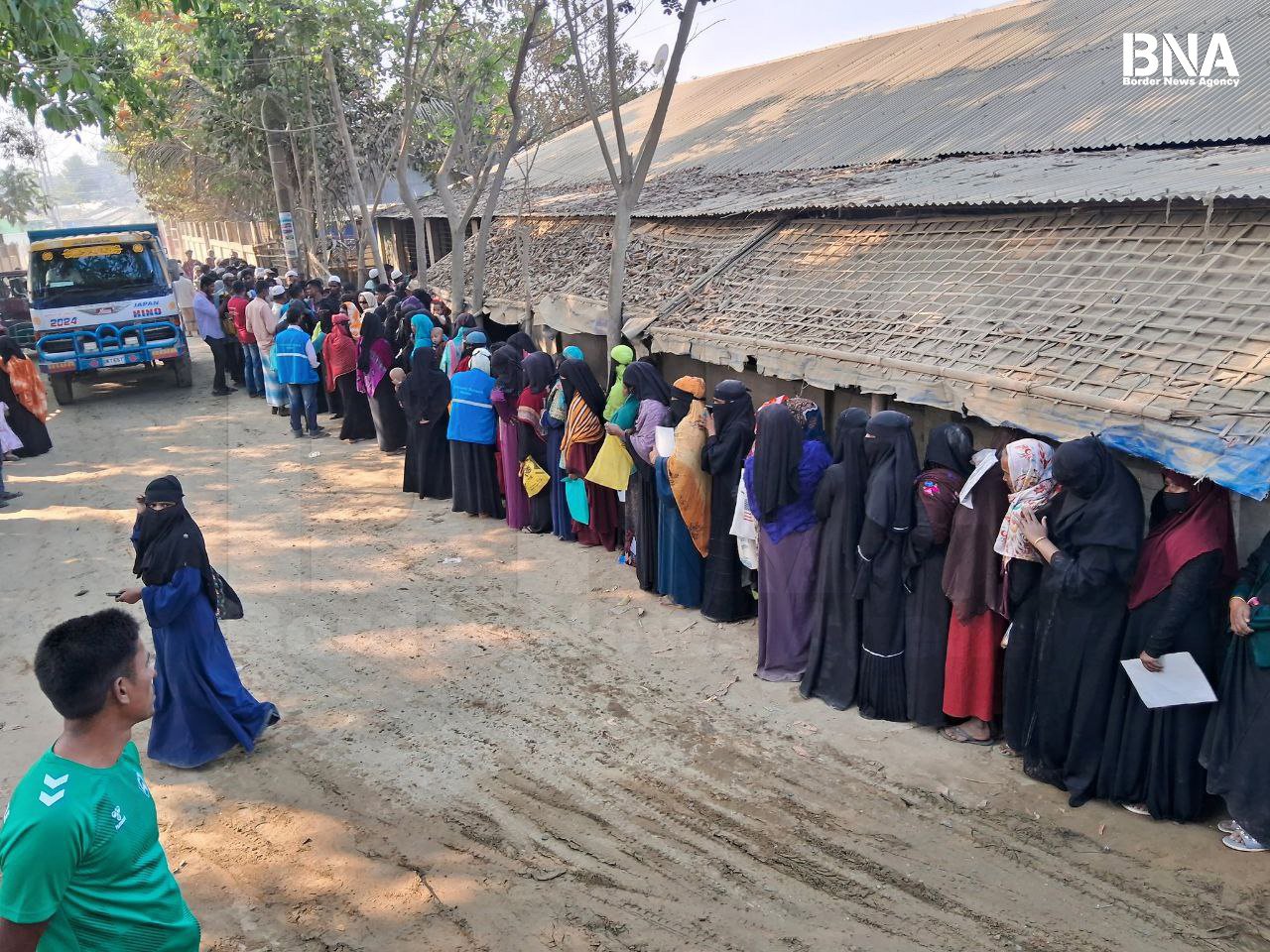Cox’s Bazar, Bangladesh in a significant humanitarian effort, the United Nations High Commissioner for Refugees (UNHCR) has begun distributing emergency food tokens to newly arrived Rohingya refugees who have not received food assistance since June 2024.
This initiative aims to support vulnerable refugees who have faced severe food insecurity over the past months.
According to reports, thousands of Rohingya refugees who arrived after June 2024 have been struggling without proper food assistance. Many families, including women, children, and the elderly, have been living in desperate conditions, relying on minimal support from local communities and humanitarian groups.
The lack of official food tokens has left them in an extremely vulnerable state, with some going days without adequate meals.
Recognizing the urgency of the situation, UNHCR has taken steps to issue emergency food tokens to these new arrivals.
These tokens will allow them to access food distributions organized by humanitarian agencies, ensuring they receive essential nutrition.
The distribution process has already begun, and efforts are being made to reach all those in need as quickly as possible.
Challenges in Food Distribution
Despite this positive development, aid workers report challenges in ensuring that every new arrival receives their food token.
Verifying the identities and arrival status of refugees requires coordination between various agencies, and the large number of undocumented arrivals has made the process complex.
A UNHCR spokesperson stated, “We are working closely with local authorities and humanitarian partners to make sure that all newly arrived Rohingya refugees receive their emergency food tokens. Our priority is to ensure that no one is left behind and that food insecurity does not worsen within the camps.”
Local aid organizations have also been urged to assist in the verification process and facilitate smooth token distribution. Ensuring transparency and efficiency is crucial to prevent discrepancies and ensure that aid reaches those who need it most.
Food Insecurity Among Rohingya Refugees
Food shortages remain one of the biggest challenges faced by the Rohingya community in refugee camps.
With limited access to resources and restricted livelihood opportunities, most refugees are entirely dependent on food aid from international organizations.
However, delays in registration and distribution processes often leave many without sufficient support.
Several Rohingya refugees who recently received their tokens expressed relief, stating that they had been struggling for months without a stable food supply.
One refugee, who arrived in the camp in late 2024, shared his experience: “We have been surviving on shared meals and whatever little we could find. This token finally gives us hope that we will have enough to eat.”
Call for Continued Humanitarian Support
Human rights groups and humanitarian organizations emphasize that while this token distribution is a crucial step, continued efforts are needed to address the broader challenges faced by Rohingya refugees.
More sustainable food aid programs, improved verification systems, and timely distribution are essential to prevent future crises.
The international community has been urged to provide additional support to aid agencies working on the ground. Without sufficient funding and resources, food insecurity among refugees could persist, leading to serious health and humanitarian consequences.
As UNHCR continues its token distribution, authorities are calling for coordinated efforts to ensure all newly arrived Rohingya refugees receive the necessary assistance.
The initiative is expected to provide much needed relief to thousands, but long-term solutions remain critical to addressing the ongoing food crisis in the camps.






